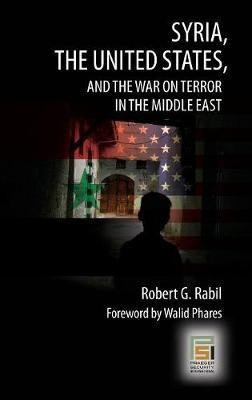Syria, the United States, and the War on Terror in the Middle East(English, Hardcover, Rabil Robert G.)
Quick Overview
Product Price Comparison
Ever since Syria won its independence from France in 1946, it has been a crucial player in Middle Eastern politics. Over the years, relations between the United States and Syria have fluctuated as Washington has tried to balance its commitment to Israel's security with its support for Arab regimes in order to protect vital and strategic interests in the Arab world. The Arab-Israeli conflict is, however. no longer the only focal point of the relationship. Now, terrorism has entered the fray. On the State Department's terrorism list since 1979, Syria became even more persona non grata as far as Washington was concerned when Damascus vocally opposed the U.S. invasion of Iraq in 2003. The American war in Iraq, occupation, and promotion of democracy throughout the Middle East pose a strong challenge to the Syrian regime. The new Syrian leadership, in power only since 2000, faces immense challenges-protecting Syria's regional status and surviving internal and external threats. Against this background, Syria and the United States have set themselves on a collision course over terrorism, arms proliferation, Lebanon, the Middle East peace process, and Iraq. Syria is, nevertheless, extremely important to the United States, because it can be a force for either stability or instability in an extremely volatile region.Recent events have put the spotlight on Syria's policies and actions. After the assassination of a Lebanese politician, protests in Lebanon led to the withdrawal of Syrian troops. While the withdrawal averted an immediate threat of bloodshed, the Bush administration accused Syria of being a source of instability in the Middle East, with Secretary of State Rice charging that Syria was still active in Lebanon and was supporting foreign terrorists fueling the insurgency in Iraq. The U.S.-Syrian relationship is of critical importance to the United States' efforts to promote democracy throughout the Middle East. At the same time, the United States has been pressuring Syria to clamp down on terrorism within its own borders. Rabil provides a history of the modern U.S.-Syrian relationship, putting the latest events in the context of this contemporary history, and placing the relationship in the context of Middle Eastern politics.


